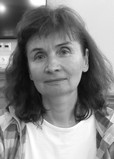Competitive training models, methods and tools for chess players with health disorders
Фотографии:
ˑ:
PhD, Associate Professor I.V. Mikhaylova1
Dr.Hab., Professor О.N. Stepanova2
1Russian State Social University, Moscow
2Moscow State Pedagogical University, Moscow
The study analyzes the missions and specifics of the key training models for the players with health disorders in the modern competitive chess viewed as intellectually demanding sport discipline that requires high logical/ abstract thinking capacities. Objective of the study was to overview benefits of the modern competitive training models, methods and tools for chess players with health disorders to secure their good competitive progress plus mental, physical and social health standards.
The study demonstrates that a high priority in the sport identification, training and competitions of players with health disorders must be given both to the intellectual and physical training practices geared to develop the key intellectual qualities, mental functions, physical and social qualities in the players. A special emphasis in the training and competitive process optimizing factors shall be given to a set of health and natural environment sensitive tools geared to mitigate the negative effects of overtraining and intellectual, sensor, emotional and physical fatigue in the players.
The systemic competitive training models, methods and tools for the chess players with health disorders shall be designed to harmonically develop the intellectual, physical and mental qualities critical for success; and improve and maintain due mental, physical and social health standards in the modern adaptive chess sport.
Keywords: competitive chess, Federal Sport Training Standard, competitive fitness, physical qualities, mental qualities, players with health disorders.
References
- Vershinin M.A. Teoriya proektirovaniya sistemy formirovaniya logicheskogo myshleniya shakhmatistov [Theory of design of logical thinking formation system in chess players]. Doct. Diss. (Hab.). Moscow, 2006, 494 p.
- Gerasimova S.V. Pedagogicheskie usloviya sotsialno-psikhologicheskoy adaptatsii detey s ogranichennymi vozmozhnostyami zdorovya posredstvom zanyatiy shakhmatami [Educational conditions of socio-psychological adaptation of children with impairments via chess sessions]. PhD diss. abstract . Moscow, 2001,24 p.
- Evseev S.P. Teoriya i organizatsiya adaptivnoy fizicheskoy kultury [Theory and organization of adaptive physical education]. Textbook. Moscow: Sport publ., 2016, 616 p.
- Ilchenko A.A. Fizicheskaya podgotovka yunykh shakhmatistov v perekhodnom periode godichnogo trenirovochnogo tsikla [Physical training of junior chess players in transitional period of annual training cycle]. PhD diss. abstract. Volgograd, 2011, 24 p.
- Koprivitsa V. Vklad L.P. Matveeva v proshloe, nastoyashchee i budushchee nashey professii [Contribution of L.P. Matveyev in the past, present and future of our profession]. Teoriya i praktika fiz. kultury, 2009, no. 9, pp. 10–12.
- Linovitskiy E.P., Naydoski T. Teoriya i metodika shahmatnogo sporta: rabochaya programma distsipliny [Theory and methodology of chess sport: work program of the discipline]. Moscow: RSUPESYT (SCOLIPE) publ., 2011, 78 p.
- Makhov A.S., Stepanova O.N., Korneva M.A. Adaptivny sport v Ivanovskoy oblasti: ot istokov razvitiya k paralimpiyskim nagradam [Adaptive sport in Ivanovo region: from origin of development to Paralympic awards]. Shuya: Shuya branch ISU publ., 2014, 224 p.
- Mikhaylova I.V., Makhov A.S. Sozdanie federalnoy innovatsionnoy ploshchadki po formirovaniyu modeli i ideologii operezhayushchego adaptivnogo shakhmatnogo obrazovaniya v vuze [Creating federal innovative platform for dissemination of model and ideology of advanced development of university adaptive chess education]. Teoriya i praktika fiz. kultury, 2015, no 10, pp. 56-58.
- Mikhaylova I.V. Determinanty podgotovki v shahmatah na etape vysshego sportivnogo masterstva [Chess training process determinants at top sport excellence stage]. Teoriya i praktika fiz. kultury, 2017, no. 9, pp. 79-80.
- O metodakh podgotovki i sovershenstvovaniya shakhmatistov vysshey kvalifikatsii [Methods of training and perfection of elite chess players]. [Electronic resource] Nauchno-metodicheskiy tsentr shahmatnogo obrazovaniya «Dva korolya» [Scientific and methodical center of chess education "Two kings]. Official website. Available at: http://chess-school2008.narod.ru/Title-txt/Averbakh-Metod.htm (Accessed: 05.05.2018).
- Panush V.G. Shakhmaty kak vspomogatelnoe sredstvo razvitiya psikhomotornykh sposobnostey detey s posledstviyami tserebralnogo paralicha [Chess to help develop psychomotor abilities of children with cerebral palsy]. PhD diss. abstract nauk. Moscow, 2001, 24 p.
- Peredelsky A.A. Sovremennaya nauka o sporte: problemy i perspektivy razvitiya [Modern sport science: problems and development prospects]. Teoriya i praktika fiz. kultury, 2018, no. 5, pp. 5–6.
- Strategiya razvitiya fizicheskoy kultury i sporta v Rossiyskoy Federatsii na period do 2020 goda [Electronic resource]. Ministerstvo sporta Rossiyskoy Federatsii [Strategy for development of physical education and sports in the Russian Federation for the period until 2020. Ministry of Sport of the Russian Federation]. Official website. Available at: http://www.minsport.gov.ru/activities/federal-programs/2/26363/ (Accessed: 05.05.2018).
- Kholodov Zh.K., Kuznetsov V.S. Teoriya i metodika fizicheskogo vospitaniya i sporta [Theory and methods of physical education and sports]. Moscow: Akademiya publ., 2001, 480 p.
- Kasparovchess [Electronic resource] Crestbook [Official website]. Available at: http://kasparovchess.crestbook.com/threads/2306/ (Accessed: 05.05.2018).



 Журнал "THEORY AND PRACTICE
Журнал "THEORY AND PRACTICE